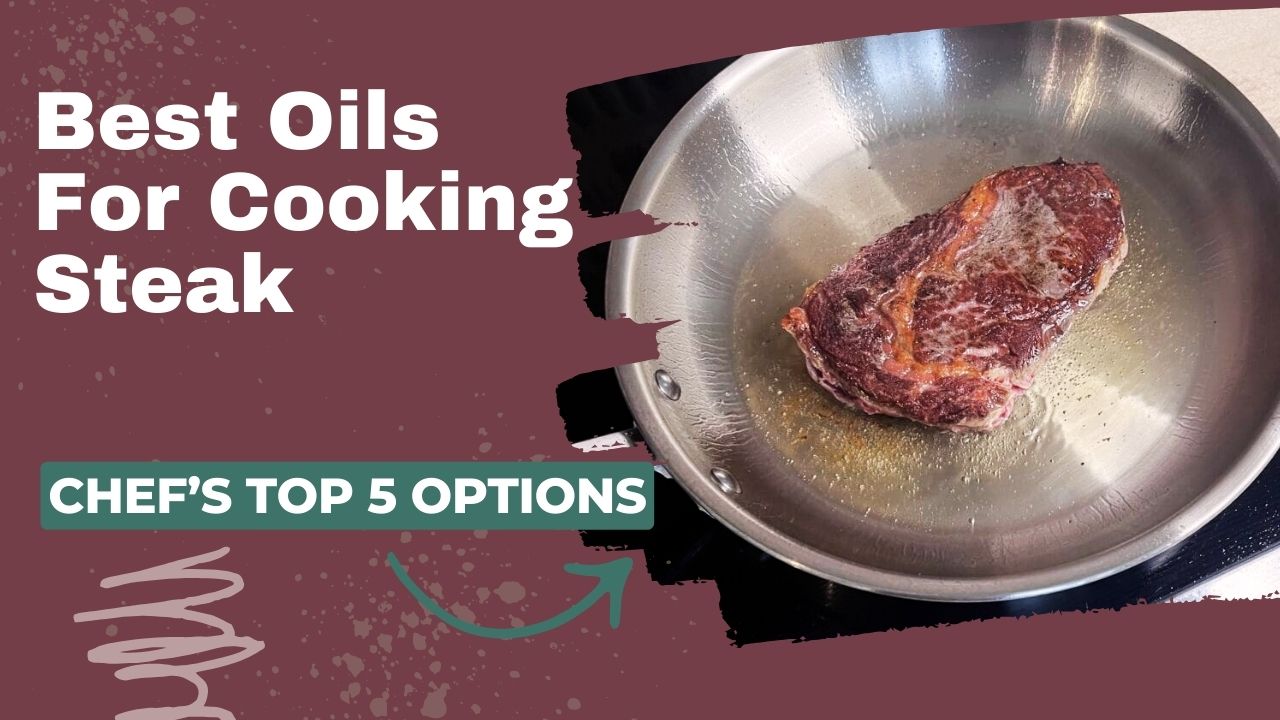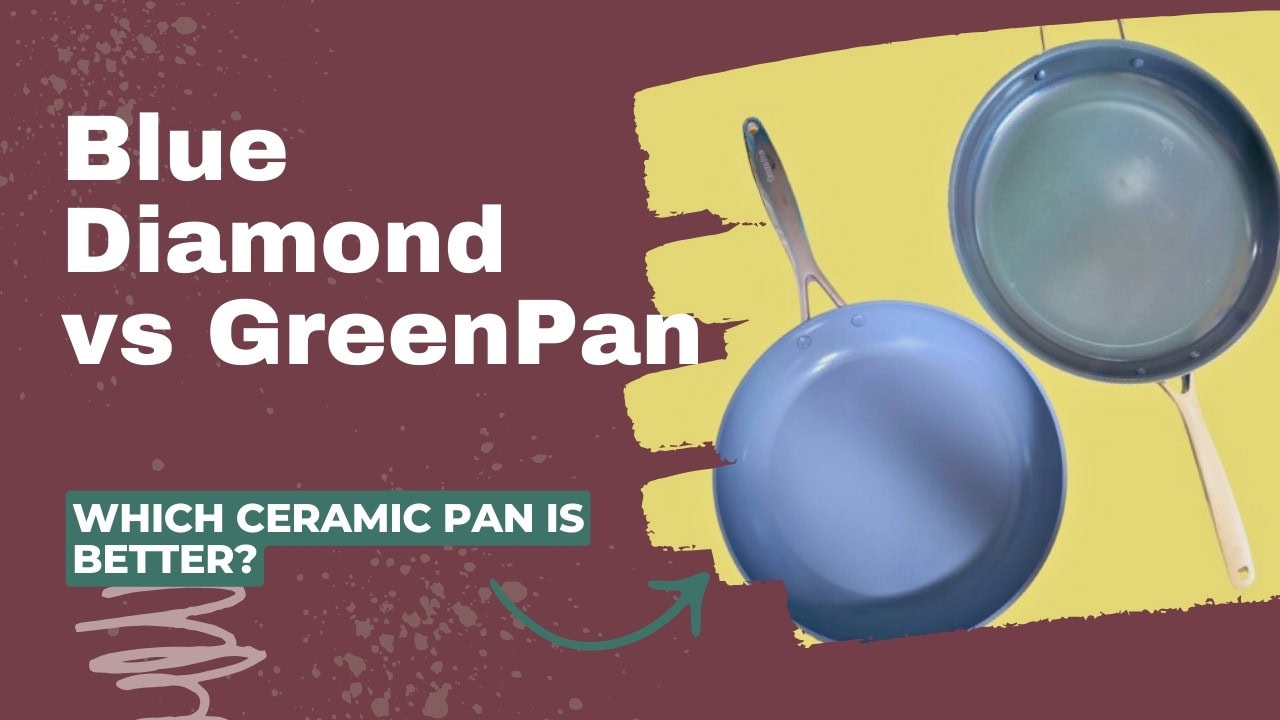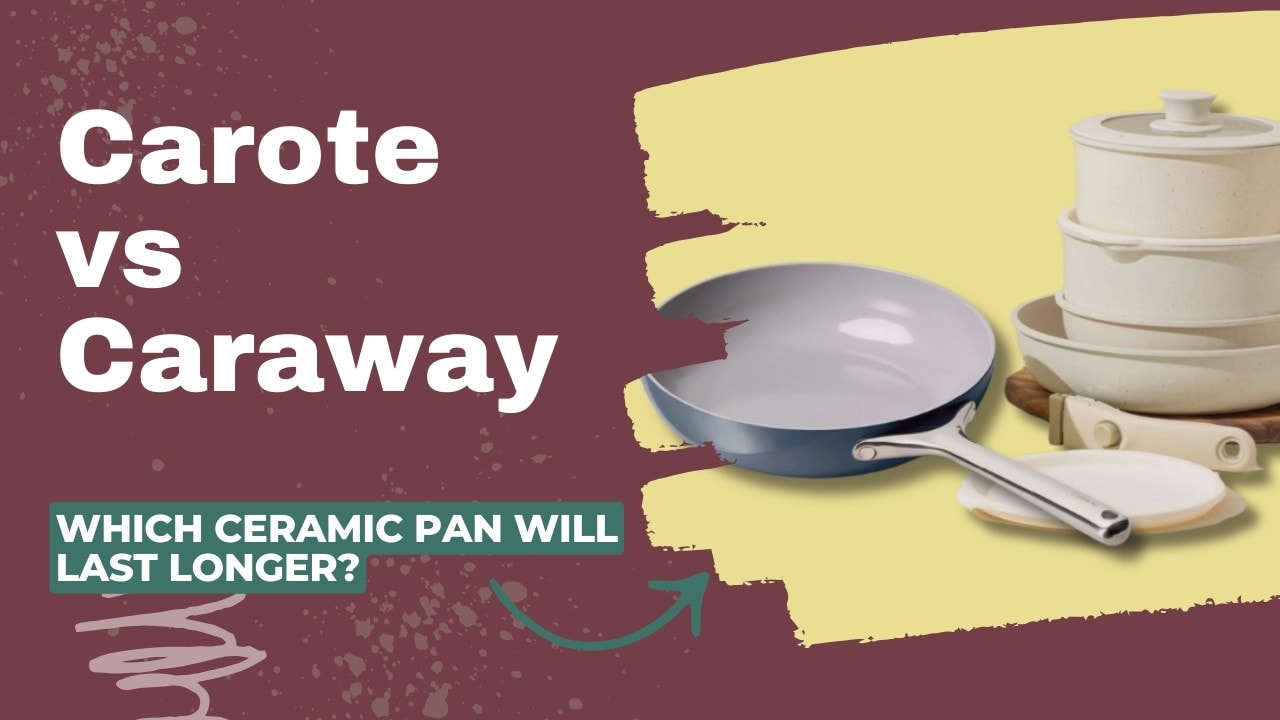Sometimes all you want after a long day is a quick, meaty dinner. The easiest, most enticing option is a pan-seared steak seared in a cast iron skillet with a glug of cooking oil.
Choosing the best beef cut isn’t the only thing that goes into getting a mouth-watering steak. The oil you use can make or break that beautiful crust you want to form around the juicy flesh. And picking the right oil for steak can be tricky since you need a high-smoke point option with a neutral flavor.
How do you find an oil that’s both healthy, flavor-neutral, and performs well with steak? Let’s look at some of the top options.
What’s the Best Oil for Cooking Steak?
Refined avocado oil, extra light olive oil, refined peanut oil, canola oil, and ghee are the best oils for cooking steak. The oil should have a high smoke point so it won’t burn before it reaches the right temperature. Oils with smoke points of 400°F-500°F/204°C-260°C are ideal for searing steak.
The worst oils to cook steak with would be anything with a low smoke point – like extra virgin olive oil, unrefined coconut or safflower oil, or, surprisingly, plain butter.
What To Look For in Cooking Oil For Steak
Smoke Point
Smoke point refers to the temperature at which the oil starts to smoke before breaking down, catching fire, or coming to a boil. An oil’s smoke point is the most important factor in choosing your cooking oil for steak, as it can affect the flavor and quality of your meal and – more importantly – impact your health.
Here’s a handy list of the most common oils and their smoke points.
| Oil | Smoke Point |
|---|---|
| Refined Olive Oil | 465°F / 240°C |
| Canola | 400-475°F / 200-246°C |
| Refined Avocado | 520°F / 260°C |
| Grapeseed | 420°F / 215°C |
| Corn Oil | 400-450°F / 204-232°C |
| Refined Coconut Oil | 400°F / 204°C |
| Peanut | 450°F / 232°C |
| Safflower Oil | 500°F / 260°C |
| Unrefined Avocado Oil | 350-400°F / 176-204°C |
| Lard | 370°F / 185°C |
| Butter | 300-350°F / 150-176°C |
| Generic Vegetable Oil | 400°F / 204°C |
Pan-searing a steak requires heating your oil to very high temperatures (400°F-500°F/204°C-260°C). If the oil has a low smoke point, you either won’t be able to cook your steak to the desired doneness, or you’ll burn the oil.
And heating oil beyond its smoke point has significant health risks.
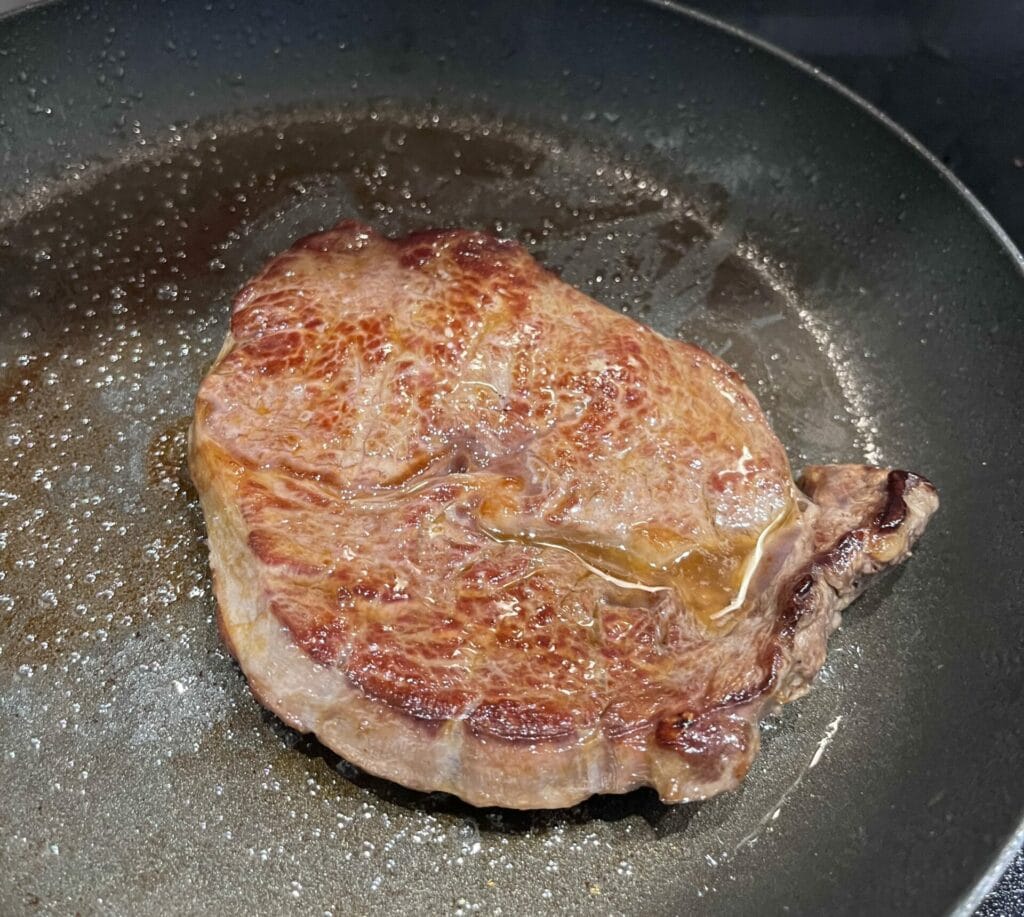
When you heat oil, several chemical reactions occur, including oxidation and hydrolysis. Hydrolysis is the chemical reaction where water molecules react with oil and release fatty acids, making your oil foam like soap. Oxidation, on the other hand, breaks down healthy chemicals and releases free radicals, which have been linked to cancer.
Refined oils typically have higher smoke points than pressed or virgin oils.
Flavor
Refined plant-based oil usually has a neutral flavor. Extra virgin or cold-pressed oils usually taste like the plant they came from.
Going with a flavorful oil for searing steak can be a personal choice. If you don’t mind adding an extra layer of flavors to your steak, you can use coconut or sesame oil to give your steak a rich taste profile.
However, if you prefer the beefy taste by itself, stick with refined oils since the refining process removes the odors and dark colors from the unrefined oil.
And what about animal fats, such as lard and butter? Many people decide to go against the plant-based trend and accentuate their steak’s beefy flavors with animal grease. This can give you a buttery flavor that adds to the steak’s richness. Just know that the smoke point tends to be lower on animal fats with a high saturated fat content.
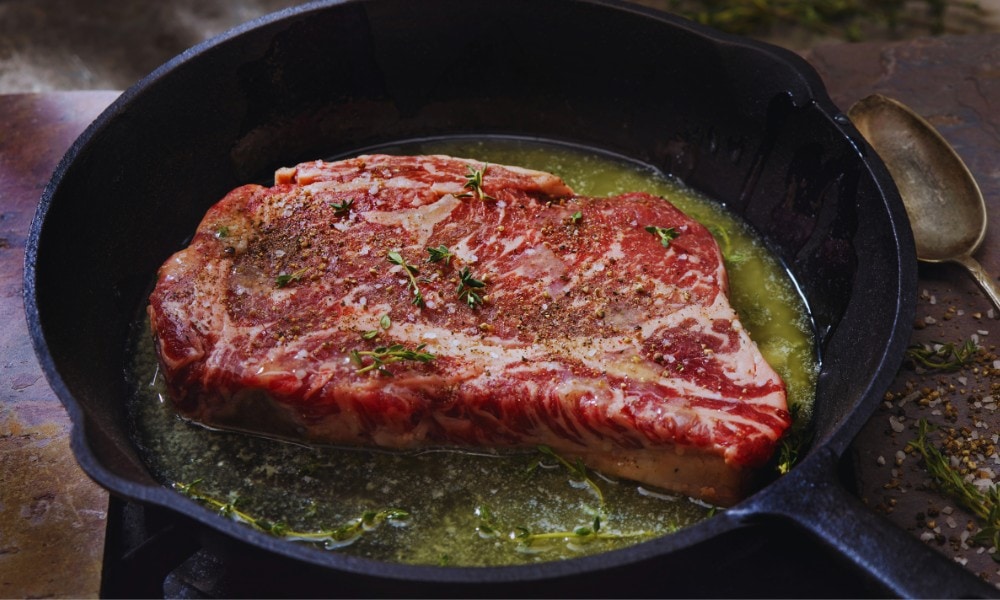
Refined vs. Unrefined
Also known as virgin or cold-pressed oil, unrefined oil has more nutritional value than refined oils when consumed raw. Healthy components such as antioxidants and polyphenols, as well as minerals and enzymes, remain intact in unrefined oils.
However, these minerals and enzymes break down when heated. Unrefined oil generally has a lower smoke point and shelf life since these impurities increase the chances of oxidation. The lower smoke point means that unrefined oil is generally not suitable for frying and is better for salad dressing.
On the other hand, refined oil goes through heat or chemical processing to remove some of its ingredients, such as free fatty acids. Removing these impurities increases the oil’s burn point, making it suitable for frying and searing.
Best Oils For Steak
Here’s the list of oils I recommend for cooking steak.
1. Refined Avocado Oil
Thanks to its myriad benefits, avocado oil is my go-to when I want to pan-sear steaks.
Refined avocado oil has one of the highest smoke points among plant-based oils (520°F/260°C), making it perfect for high-heat cooking, including pan searing, stir-frying, and deep frying.
Even unrefined avocado oil has a high enough smoke point for some high-heat cooking purposes (350-400°F/176-400°C)!
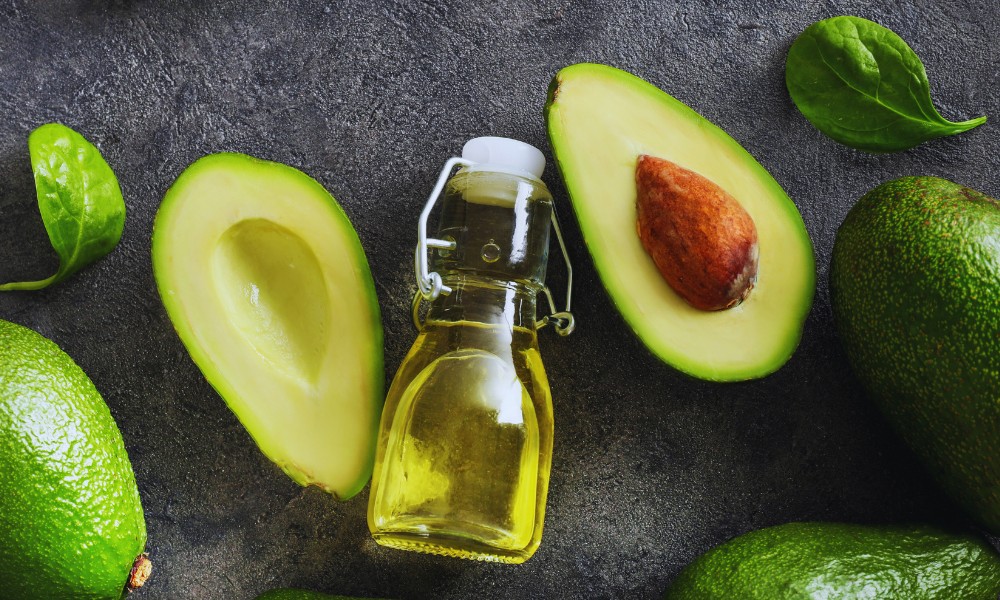
The flavor is neutral, with only slight hints of avocado in refined oil. It has the creamy, buttery texture of avocado, which gives it a nice sear with a uniform crust.
It’s also one of the healthiest oils out there, rich in antioxidants, unsaturated fats, and omega 3, 6, and 9 fatty acids. These ingredients give avocado oil anti-inflammatory, heart-friendly, and cholesterol-reducing benefits.
2. Refined Olive Oil
When it comes to flavor, texture, and affordability, olive oil is hard to beat in the steak department! It may have a lower smoke point than avocado oil (465°F/240°C), but it’s still stable enough for searing steak.
Remember that extra virgin olive oil isn’t a good candidate for searing steak despite its health benefits when raw. Its smoke point is low (350°F/175°C), which is much lower than the minimum temperature for searing steak. That’s why you should always look for light, refined olive oil to prevent burning and ruining your steak’s flavor.
3. Refined Peanut Oil
You probably think of Asian cuisine when you hear peanut oil, but it’s a great alternative to avocado and olive oil that brings some variety into your diet.
Refined peanut oil is odorless and colorless, and thanks to its high smoke point (450°F / 232°C), it’s perfect for searing steak. But it’s loaded with omega-6 fatty acids, which have inflammatory effects. So, you may want to limit your consumption unless you eat copious amounts of omega-3-rich foods!
4. Canola Oil
With a smoke point of 400-475°F (200-246°C), canola oil is a popular variety for high-heat cooking. It’s a great source of vitamins E and K, as well as omega 3.
It also has a low saturated fat content and a reasonable omega 6/omega 3 ratio.
Like other oils with high smoke points, canola oil is refined, which can remove some of its nutritional benefits. Plus, the refining process introduces chemicals, such as hexane. However, this is the trade-off we may need to make to avoid burning the oil at low temperatures.
5. Ghee
If you love the rich milky flavor of butter with your steak, you may have to resort to basting after the steak is done. Butter is not a good option for searing steak directly. Its low smoke point (300°F / 150°C) means that it burns before reaching the minimum temperature for cooking steak.
However, you’re not out of luck. Ghee, or clarified butter, can give you all the buttery goodness without giving you burning.
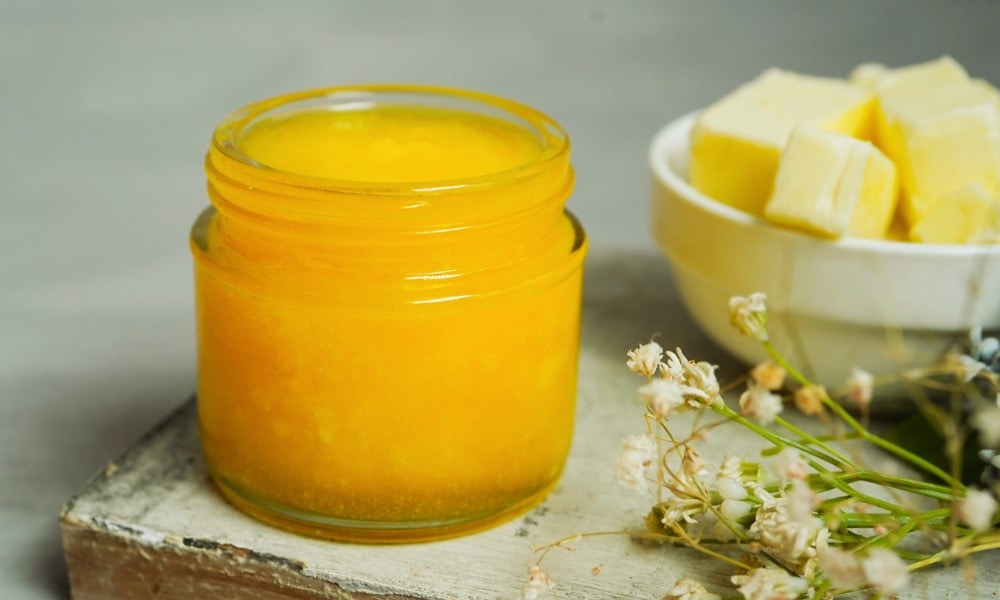
Ghee is made by melting butter and straining to remove solid particles that burn at low temperatures. The result is clear golden butterfat with a very high smoke point. It’s nearly free of casein and lactose, so many people who have dairy intolerances can enjoy ghee without discomfort.
Summary
The overwhelming variety of oils available for searing steak can be confusing, but hopefully, this article can help you choose the best product. Within oils that have a high smoke point, you can choose from products with a range of flavors and nutritional profiles.
What oils do you like to use to sear your steak? Have you ever tried ghee? Let us know in the comments.

